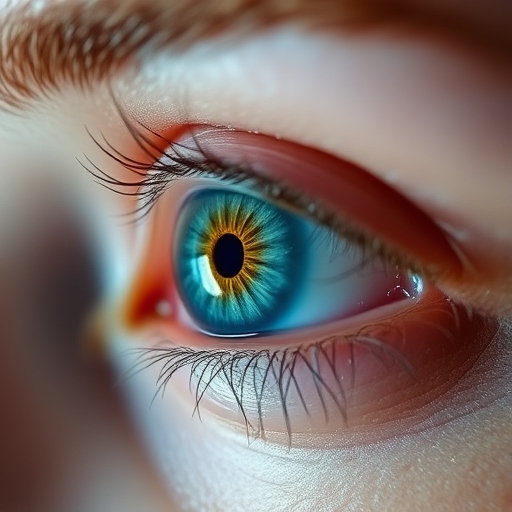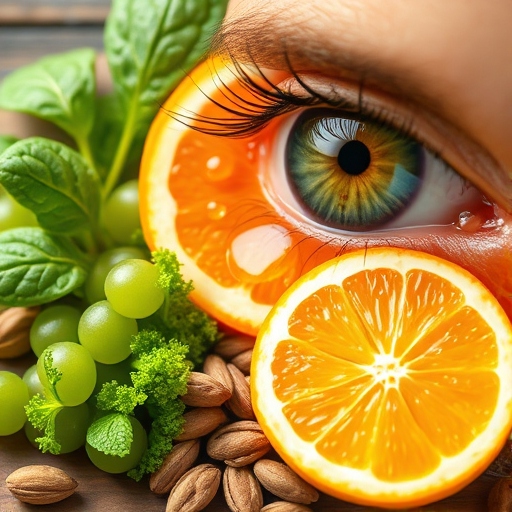Winter Eyes refers to the eye issues many people experience during the colder months. The combination of dry indoor heating and frigid outdoor air often makes eyes feel dry, irritated, and uncomfortable.
These symptoms aren’t just inconvenient—they’re signs that our eyes may need extra care in winter. Understanding Winter Eyes can help us identify and manage seasonal eye discomfort, keeping our eyes healthy all season long.
Common Winter Eye Issues and How to Manage Them
Winter can bring several eye issues like dry eyes, itchiness, redness, and even blurred vision. The cold wind and low humidity strip the eyes of moisture, causing these problems to flare up.
To manage Winter Eyes, use a humidifier indoors, keep eyes hydrated with artificial tears, and wear protective eyewear outdoors. Regularly practicing eye care routines can significantly ease discomfort and prevent winter eye issues from becoming long-term concerns.
Why Do Our Eyes Feel Different in Winter?
In winter, cold air holds less moisture, making the environment drier. This impacts the tear film on our eyes, which relies on consistent humidity to stay balanced.
Indoor heating, which is often used continuously, further dries out the air. This constant shift from warm, dry air indoors to cold, dry air outdoors leaves our eyes struggling to maintain moisture, resulting in the classic symptoms of Winter Eyes.
Symptoms of Winter Eyes: How to Recognize
Common symptoms of winter eyes include dryness, a gritty sensation, itching, and redness. Some may also experience sensitivity to light, particularly if the winter sun reflects off snow.
Recognizing these symptoms early can help you take steps to protect your eyes. If these signs persist or worsen, they may require targeted care to prevent them from affecting your daily comfort and vision.

Winter Dry Eye vs. Regular Dry Eye: What’s the Difference?
Regular dry eye occurs year-round, but Winter Eyes often feels more intense due to the season’s environmental factors. While regular dry eye can be triggered by things like screen use or allergies, Winter Eyes is primarily caused by the dry, cold air of winter and constant exposure to heated indoor environments. Knowing this distinction helps in applying season-specific remedies, like using a humidifier or applying eye drops more frequently
How Cold Air and Indoor Heating Affect Your Eyes
Cold air can be harsh on the eyes, stripping away moisture each time we step outside. On the other hand, indoor heating reduces humidity, drying out our eyes as we try to stay warm.
The eyes rely on a moist tear film for comfort, so alternating between these extremes often leads to Winter Eyes symptoms. To keep your eyes comfortable, aim to balance indoor moisture and protect them outdoors
Protecting Your Eyes from Harsh Winter Winds
Wind can worsen Winter Eyes by quickly drying out the tear film. To protect your eyes, consider wearing wrap-around sunglasses or goggles when outside.
This helps shield eyes from the wind and sun glare. Another helpful tip is to avoid rubbing your eyes if they feel dry or irritated, as this can lead to further discomfort and potential damage
Essential Winter Eye Care Tips for Every Season
Keeping Winter Eyes at bay doesn’t have to be complicated. Simple steps like staying hydrated, using a humidifier, applying warm compresses, and avoiding direct heat from vents can help maintain your eyes’ moisture.
Make it a habit to gently clean your eyelids each evening to remove any buildup that could irritate them. Incorporating these habits helps make winter eye care easier and more effective

Winter Eye Relief: Effective Remedies for Dry and Irritated Eyes
When Winter Eyes symptoms arise, artificial tears or lubricating eye drops offer immediate relief by providing moisture.
Using warm compresses can also help open up the oil glands around your eyes, supporting a healthy tear film. Cold compresses can reduce inflammation and itching. These simple remedies can help manage symptoms and provide much-needed comfort
Choosing the Right Eyewear for Winter:
Winter sun can be just as intense as summer sun, especially with snow glare, which increases UV exposure. Wearing sunglasses that block UVA and UVB rays is essential to protecting your eyes.
If you’re into winter sports, goggles are a must—they provide both UV protection and a barrier against the cold wind, helping to prevent Winter Eyes issues

Hydration and humidity:
Your eyes are sensitive to hydration levels in your body and environment. Drinking plenty of water and maintaining indoor humidity levels are key ways to keep Winter Eyes in check.
Consider using a humidifier in rooms where you spend most of your time, as this can help maintain a comfortable moisture balance and prevent dry eye symptoms.
Eye-Friendly Nutrition for Winter:
Certain foods can support eye health during winter. Omega-3 fatty acids from fish and nuts, Vitamin C from citrus fruits, and Vitamin E from seeds and leafy greens all support tear production and eye health. These nutrients can help prevent Winter Eyes by strengthening the eye’s natural defenses against dryness and irritation.

Winter Eye Myths and Facts:
There are many myths about Winter Eyes—for instance, that eye care isn’t necessary if you’re not in the sun or that dry eyes are only for older adults.
However, winter eye care is crucial for everyone, and dryness can affect all ages. By knowing the facts, you can prevent seasonal eye problems more effectively and avoid common mistakes
The Importance of Eye Exams During Winter Months
Winter is an excellent time for an eye exam, especially if Winter Eyes symptoms are bothering you. An eye doctor can check for any underlying issues that may be worsening seasonal discomfort. Regular eye exams ensure your vision remains clear and that minor winter eye issues don’t turn into more significant problems down the road.
From Ski Slopes to City Streets:
Whether you’re skiing, walking in the city, or driving, winter eye protection is essential. Sunglasses and goggles aren’t just for snow sports; they help protect against wind, sun glare, and debris in any environment. Keeping your eyes covered and practicing good eye care habits can prevent Winter Eyes and keep you enjoying winter activities comfortably
What is Winter Eyes?
Winter Eyes refers to the dryness, irritation, and discomfort many experience in their eyes during colder months due to dry air and wind.
Why do my eyes feel dry in winter?
Cold air outside and indoor heating reduce moisture in the air, leading to eye dryness and irritation.
How can I prevent winter eyes?
Use a humidifier, stay hydrated, wear protective eyewear outdoors, and apply lubricating eye drops as needed.
What eyewear is best for winter?
Sunglasses with UV protection and wrap-around styles can shield your eyes from cold wind and glare.
Is a humidifier helpful for Winter Eyes?
Yes, it helps maintain indoor humidity, reducing dryness and keeping eyes comfortable.
Can diet help with Winter Eyes?
Yes, foods rich in Omega-3s and vitamins C and E support eye health and tear production.
Should I see an eye doctor for Winter Eyes?
If symptoms persist or worsen, an eye exam can help address any underlying issues.
